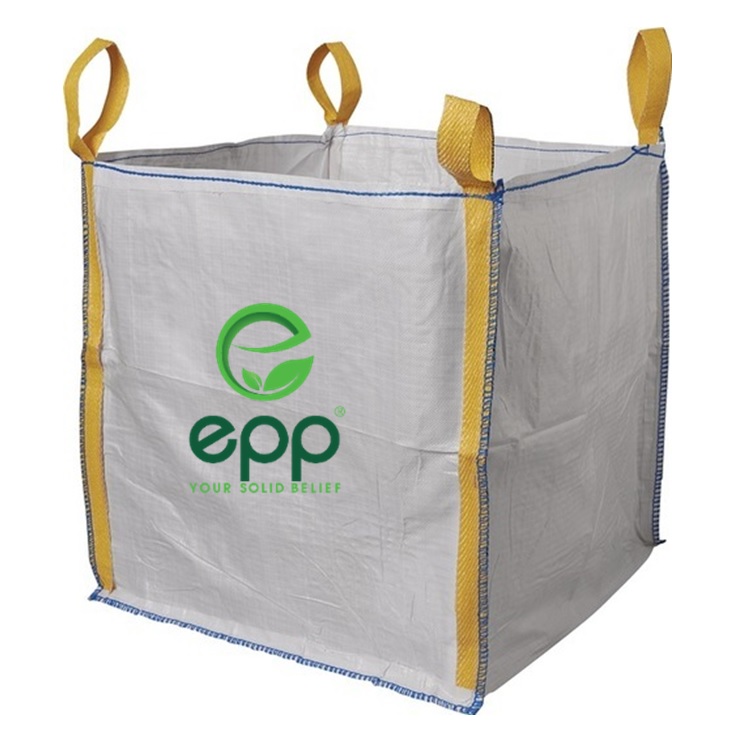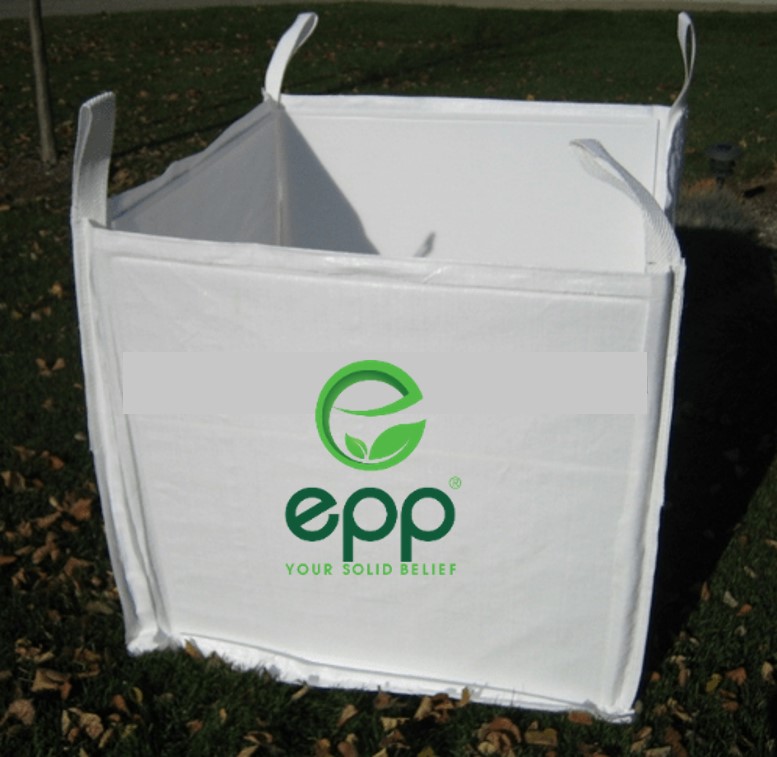What is the current potential for exporting Type D FIBC bags to Malaysia? This is a topic of interest for many businesses involved in the production of this type of product. Understanding this, today EPP Vietnam will explore this issue in detail. In addition, there is a wealth of other useful information waiting for you to discover.
What are Type D FIBC bags?
Type D FIBC bags are a type of bag made from anti-static fabric and have the ability to dissipate static electricity. These bags are used to contain and transport easily combustible products in flammable environments.

What are Type D FIBC bags?
Advantages of Type D FIBC bags
Type D FIBC bags have the following advantages:
-
Static electricity dissipation: This is the most prominent advantage of Type D big bags. These bags can dissipate static electricity, helping to prevent the risk of fire and explosion for easily combustible products.
-
Lightweight, durable, and good water and moisture resistance: Type D big bags are made from anti-static fabric, usually woven PP fabric containing metal or carbon fibers. This fabric has high durability and good water and moisture resistance. This helps protect the products from external factors such as temperature and humidity.
-
Diverse sizes, suitable for various types of products: Type D jumbo bags come in a variety of sizes, suitable for various types of products. The safe working load of Type D bulk bags is usually from 500 kg to 2.5 tons.
The potential for exporting Type D FIBC bags to Malaysia
Malaysia is a country with a developed economy, with an average GDP growth rate of 5.3% in the 2021-2022 period. Malaysia's industry is experiencing strong growth, including industries such as chemicals, food, pharmaceuticals, etc. These industries have a demand for Type D bulk bags to contain easily combustible products.

The potential for exporting Type D FIBC bags to Malaysia
According to the International Bulk Bag Association (IBCA), in 2022, Malaysia imported about 1.2 million tons of FIBC bags, including Type D big bags. Vietnam is one of the major suppliers of FIBC bags to Malaysia, with a market share of about 10%.
The potential for exporting Type D big bags to Malaysia is significant. Below are some factors that indicate this potential:
-
Economic growth and development of industries in Malaysia: The economic growth and development of industries in Malaysia will lead to a high demand for FIBC bags, including Type D bulk bags.
-
The development of trade between Vietnam and Malaysia: Trade between Vietnam and Malaysia is growing strongly. In 2022, bilateral trade reached 12.8 billion USD, an increase of 17.1% compared to 2021. This will create favorable conditions for Vietnamese businesses to export Type D jumbo bags to Malaysia.
-
Quality and competitive prices of Vietnamese FIBC bags: Vietnamese FIBC bags are highly regarded for their quality and competitive prices. This gives Vietnamese businesses a competitive advantage in exporting Type D big bags to Malaysia.
The process of exporting Type D FIBC bags to Malaysia
The process of exporting Type D FIBC bags to Malaysia includes the following steps:

The process of exporting Type D FIBC bags to Malaysia
Step 1: Finding customers
The first step is to find customers in Malaysia. Businesses can find customers through the following channels:
-
Directly: Businesses can participate in trade fairs, meet Malaysian partners, etc.
-
Online: Businesses can find customers through e-commerce websites, social networks, etc.
Step 2: Negotiation and contract signing
After finding customers, businesses need to negotiate and sign contracts. The contract should specify the following terms:
-
Type of FIBC bag, size, safe working load, color, printing, etc.
-
Quantity of FIBC bags
-
Price
-
Delivery time
-
Payment method
-
Other terms
Step 3: Production of FIBC bags
-
After signing the contract, businesses need to produce FIBC bags according to the customer's requirements. FIBC bags need to be quality tested before export.
Step 4: Customs procedures
Businesses need to complete customs procedures to export FIBC bags to Malaysia. Customs procedures include:
-
Preparing customs documents
-
Submitting customs documents
-
Paying taxes
Step 5: Transportation
Businesses can choose to transport FIBC bags by sea, air, or land.
Step 6: Delivery
Businesses need to deliver the goods to the customer according to the agreed time and location in the contract.
In conclusion, the above is the potential for exporting Type D FIBC bags to Malaysia. We hope that this article has provided you with useful information. For any further information, please contact us using the contact information at the end of the article.
🌐 Address: Central Lake 1 Building, Aqua Bay, Ecopark, Phung Cong Commune, Van Giang District, Hung Yen Province.
🌐 Website:https://epp.vn - https://eppvietnam.trustpass.alibaba.com
📲 +84 986 002 888 - sales@epp.vn

.jpg)
